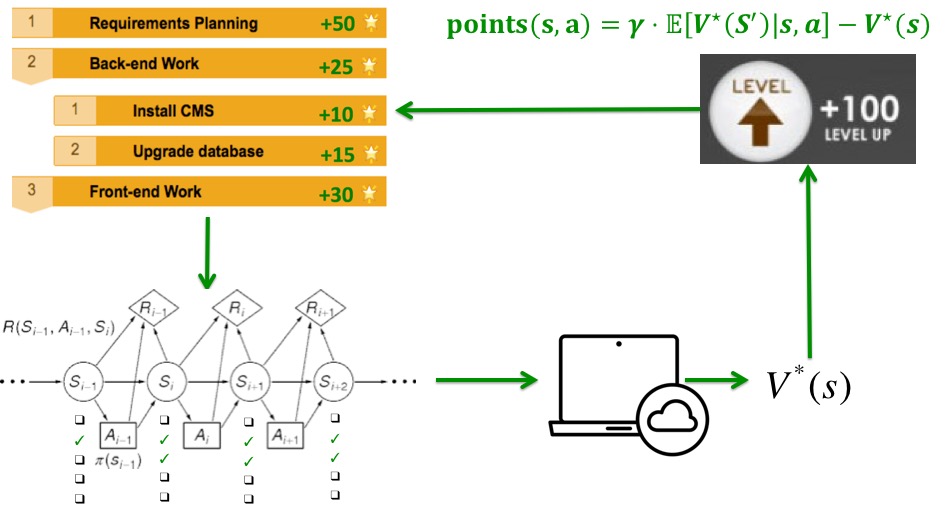
Today's rapid advances in artificial intelligence present an unprecedented opportunity to augment the human mind with the help of technology. Our goal is to leverage insights from cognitive science to develop technologies that help humanity overcome its cognitive limitations and enable people to make better decisions, learn faster, become more productive, and achieve their goals.
We are currently working on a cognitive prosthesis for helping people achieve their goals on time. The basic idea is to align each action's immediate reward with its long-term value so as to make good decisions easier (Lieder & Griffiths, 2006). We have developed a mathematical framework for designing incentive structures that can be used to guarantee that the rewards won't accidentally incentivize counter-productive behaviors and a computational method for computing incentives that make it as easy as possible for people to choose the course of action that is best in the long run. We are working on instantiating this approach in a to-do list gamification app. Initial results suggest that this is a promising approach to helping people overcome procrastination (Lieder, Chen, Krueger, & Griffiths, 2019). We are currently scaling up this approach and integrating it into a digital companion that helps people achieve their goals. We are also working towards incentivizing planning and goal-setting and computing personalized incentives based on inverse-reinforcement learning. In another project, we successfully applied this approach to incentivize self-directed learning (Xu, Wirzberger, & Lieder, 2019).
